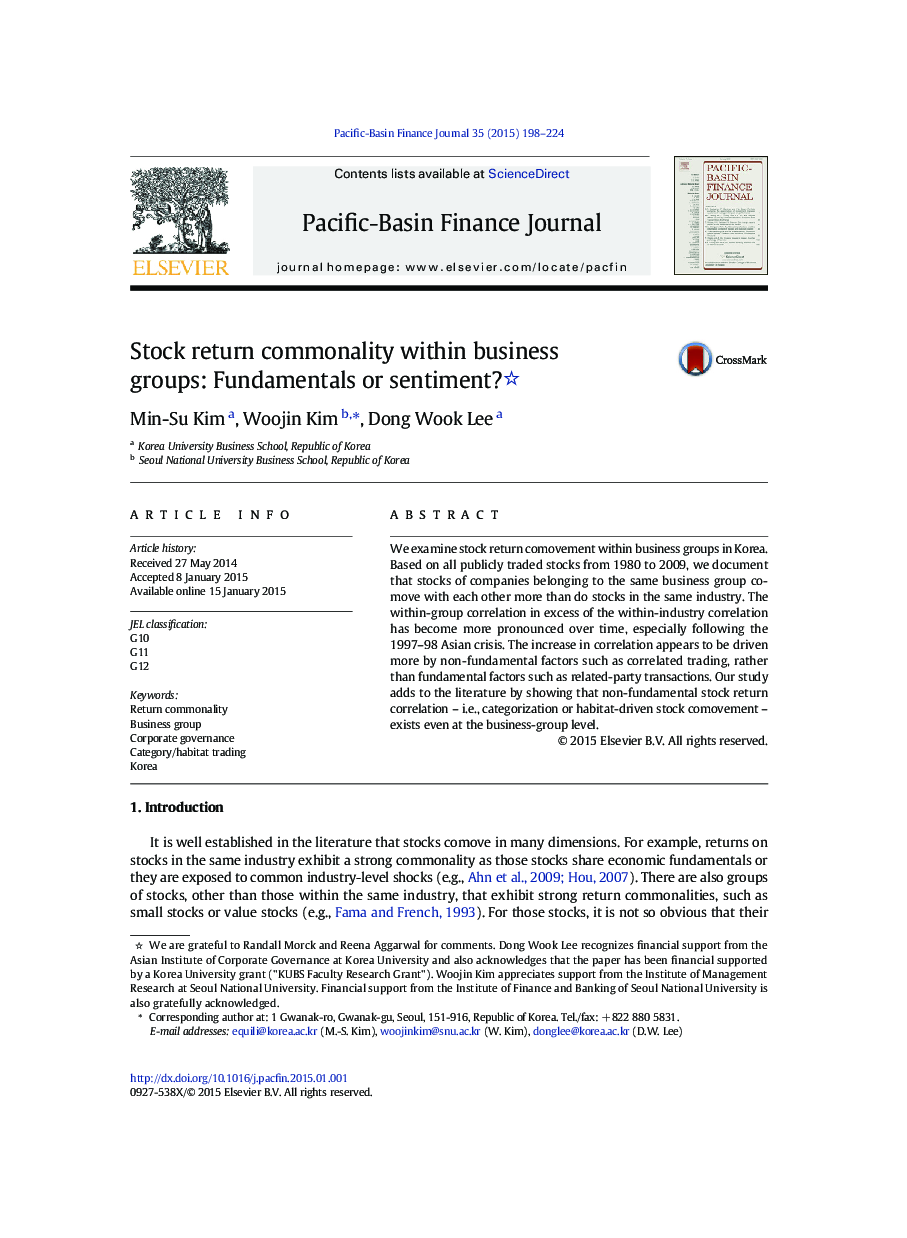| Article ID | Journal | Published Year | Pages | File Type |
|---|---|---|---|---|
| 975207 | Pacific-Basin Finance Journal | 2015 | 27 Pages |
•We examine stock return comovement within business groups in Korea from 1980 to 2009•Same-business group stocks comove more than same-industry stocks, especially following the 1997–98 Asian crisis•The increase in within-group correlation appears to be driven more by non-fundamental factors than fundamental factors•Post-crisis association between return comovement and trading comovement is stronger among smaller business groups•Non-fundamental return correlation based on categorization or habitation exists even at the business-group level.
We examine stock return comovement within business groups in Korea. Based on all publicly traded stocks from 1980 to 2009, we document that stocks of companies belonging to the same business group co-move with each other more than do stocks in the same industry. The within-group correlation in excess of the within-industry correlation has become more pronounced over time, especially following the 1997–98 Asian crisis. The increase in correlation appears to be driven more by non-fundamental factors such as correlated trading, rather than fundamental factors such as related-party transactions. Our study adds to the literature by showing that non-fundamental stock return correlation – i.e., categorization or habitat-driven stock comovement – exists even at the business-group level.
